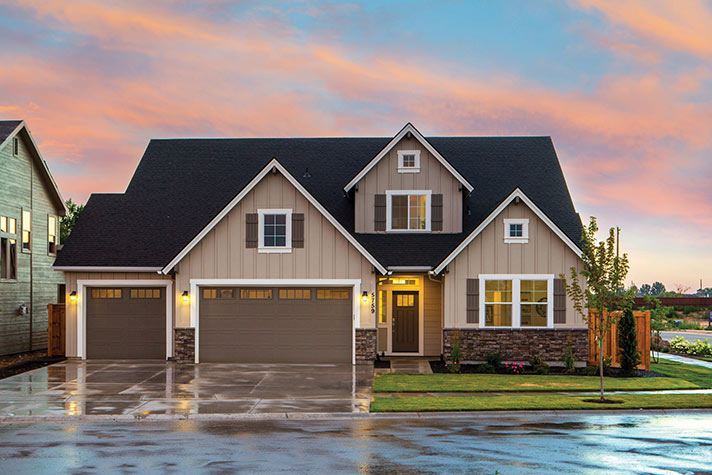On Real Estate & More – November 2023
Buying a new home is exciting, but also one of the biggest investments a person will make. While some costs like property taxes, insurance and maintenance are often considered by many home buyers, there are other costs that should be considered. And it’s important to consider how some of them can be incorporated into a loan when working with a lender.
Closing costs—Most homebuyers are aware of closing costs, but they are often underestimated. These costs encompass a range of fees associated with a home purchase, such as appraisal fees, title insurance, attorney fees, and loan origination charges. On average, closing costs can amount to 2% to 5% of the home’s purchase price. Some lenders offer the option to roll these costs into the loan, helping you minimize the upfront financial burden.
Property tax—While this cost varies for each property, property tax is an ongoing cost as long as you own the property and it’s a consideration to factor in when targeting different areas to live in. Often this payment is folded into your monthly mortgage bill.
Homeowners insurance—Before your lender will let you take out your mortgage, you’ll need to provide proof of homeowners insurance, which covers losses and damages to the home, as well as liability coverage against accidents that might take place on your property. In many cases, when you pay your mortgage, you will be paying for this as well.
Private Mortgage insurance (PMI)—If your down payment is less than 20% of the home’s purchase price, you may be required to pay PMI. PMI costs typically range from 0.3% to 1.5% of the original loan amount and are usually added to your monthly mortgage payments.
Home Warranty—A home warranty can provide peace of mind by covering major systems and appliances in your new home. Though not commonly included in the purchase price, some sellers offer to pay for a one-year home warranty, which can be negotiated during the home-buying process.
Homeowners Association (HOA) Fees—If you are considering buying a property in a managed community or a condominium, you may be subject to HOA fees. These fees are collected by the homeowner’s association to maintain common areas, amenities, and community services. Make sure you understand the HOA fees and what they cover.
Utilities—If you’re moving from an apartment where your utilities were included in your monthly rent, you might have some sticker shock when it comes to paying utility bills at your new home. Take into account the approximate utility costs when deciding on the home you want.
Home Renovations or Repairs—While you may have fallen in love with a property, factor in potential renovation or repair costs. From small cosmetic changes to more significant or structural updates, having a financial cushion for renovations can be beneficial.
Emergency costs—Things will break. A water pipe, the AC, the water heater. Whether you need to just repair it or replace it, there’s a cost associated. Having an emergency fund to provide your budget some padding will be a big relief for when, not if, it happens.
This list doesn’t include everything, nor will you need to address every item here. Still, it’s a good overview of all the things that homeowners aren’t always thinking of but can be a drain on your finances. It’s better to know what could be coming at you and to be prepared for it, than to be surprised.

 Sandy J. Brown lives in Jacksonville and is a real estate broker and land use planner with Windermere Van Vleet Jacksonville. She can be reached at sandyjbrown@windermere.com or 831-588-8204.
Sandy J. Brown lives in Jacksonville and is a real estate broker and land use planner with Windermere Van Vleet Jacksonville. She can be reached at sandyjbrown@windermere.com or 831-588-8204.